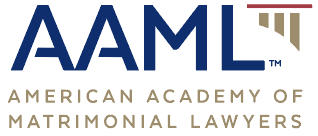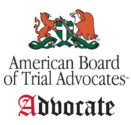
Stealing Corporate Assets or Opportunities and Misappropriation of Trade Secrets
Many business disputes are matters of a simple misunderstanding or disagreement. Others are more serious. A company’s shareholders, partners, and members have a fiduciary duty to act in the best interests of the company – an obligation that includes measures like protecting the company’s assets, making sure it can take advantage of available opportunities, and preserving its trade secrets.
Stealing corporate assets or opportunities, or misappropriating corporate trade secrets, aren’t merely unfair, they also represent a serious breach of trust that may rise to the level of a breach of fiduciary duty or outright fraud. To limit the damage and ensure a full and fair resolution, choose an experienced North Carolina business dispute attorney with the knowledge and commitment to be Strong for You.
Stealing Corporate Assets
When a member or partner steals assets from the company, the other members or partners may take the blow personally. It feels as if the partner is stealing from them, rather than from a business. From a legal perspective, the business is the entity that is being victimized. Nonetheless, it falls to the other partners or members to stand up for the business and address the situation.
Assets might be stolen from the company in a number of ways:
- Embezzlement occurs when a person in a position of trust, like a partner or member, steals money, property, or other items of value from the company. Typically, the person who takes the asset was legally allowed to handle the asset on behalf of the business. They were trusted to handle it appropriately, but they violated that trust.
- Like embezzlement, skimming involves taking assets from the business. However, it specifically refers to taking assets (usually cash) before it has been recorded, such as when a partner sells some of the business’s equipment, but does not record the sale and instead pockets the money. Skimming can be difficult to detect because no records are made.
- Fraudulent disbursements. Fraudulent disbursements occur when a partner or member uses the company’s systems or assets to benefit themselves. They may be carried out through expense, billing, or payroll schemes in which individuals divert unearned funds to themselves, or in other ways.
Stealing Corporate Opportunities
Stealing corporate opportunities most often occurs when a partner or member spots a business opportunity that would help the company. Instead of alerting the company about this opportunity, however, the shareholder or member decides to take advantage of it for his or her own benefit.
While this behavior would seem appropriate between companies competing in the same marketplace, when partners or members “help themselves” to the company’s opportunities, they commit a breach of fiduciary duty. Partners and members are obligated to act in the best interests of their companies – including by bringing the business opportunities they discover to the attention of the business, rather than simply pocketing the benefits for themselves.
Other methods of stealing corporate opportunities may closely resemble a form of stealing company assets. Instead of tangible items like money or equipment being stolen or diverted, however, the valuables stolen consist of information, like customer lists, trade secrets, and proprietary software.
Misappropriation of Trade Secrets
Generally speaking, a piece of information is a trade secret when it gives a company a competitive business advantage because it is not known to the company’s competitors. Trade secrets may include formulas, plans, patterns, supplier or customer lists, financial data, computer software, and more. For example, a company that designs a database allowing it to cross-reference customer data more efficiently than its competitors’ databases may consider the database program a trade secret and strive to protect its secrecy.
When trade secrets are taken from the company by departing partners or members, or when a partner or member passes a trade secret on to another individual, the partner or member may be said to be misappropriating trade secrets. Most U.S. states address misappropriation of trade secrets through a version of the Uniform Trade Secrets Act (UTSA), or they have their own laws addressing trade secrets.
Like stealing company assets or opportunities, misappropriating trade secrets is actionable because a partner or member who does so is breaching their fiduciary duty to act in the company’s best interests. Unlike stealing company assets or opportunities, however, there is rarely a need to show that the partner or member benefited personally from misappropriating the trade secret – merely that they did so.
However, in order to rise to the level of misappropriation of trade secrets, the item or information taken must be secret. In other words, it can’t be commonly known in the industry, and the business must have taken active steps to keep the information secret.
How Our Eastern North Carolina Business Attorneys Are Strong for You
When a partner or member steals the company’s assets or opportunities, or misappropriates one or more of its trade secrets, the damage may be immediate and severe. Waiting for a court case to reach its conclusion could do untold damage to the company – damage that even a favorable verdict cannot fully correct. In these cases, the Eastern North Carolina business dispute attorneys at The Armstrong Law Firm, P.A. strive to have a temporary injunction enacted, halting or limiting the damage while the case is carried out.
Then, we dig into the details of the case. We talk to witnesses, review documentation and records, and contact qualified professionals for help when needed, such as forensic accountants, computer security specialists, and other experts in their respective fields. Then, we stand Strong for You at every stage, from mediation and settlement negotiations through a courtroom trial and enforcement of any judgment rendered in your favor.
For the past 30-plus years, we have served eastern North Carolina’s business community with legal knowledge and experience provided in a family-like small firm setting. If you believe a partner or member in your business is breaching your trust and harming the company, contact us today to find out how we can help you and your business.


 Stealing Corporate Assets or Opportunities and Misappropriation of Trade Secrets
Stealing Corporate Assets or Opportunities and Misappropriation of Trade Secrets








